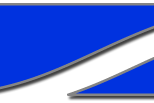"Social or ethical auditing is a technique intended to complement traditional financial accounting" (
The Corporate Ethics Monitor, Volume 10, Issue 1, page 12). Social and ethics audits are used by corporations as an "effective and verifiable framework within which to measure and test their non-financial performance" (
The Corporate Ethics Monitor, Volume 10, Issue 1, page 12). EthicScan distinguishes between an ethics audit - which looks at best possible or ethically optimal international standards - and a social audit - which uses a company's standards or best practice within an industry sector. Other organizations may use the concepts interchangeably. EthicScan has a list of fifty-five private and public organizations that have conducted such investigative reports.
In Canada, ethics audits tend to have six major components: "values-based standard setting, document review, benchmarking, an environmental scan, multi-stakeholder surveys, and action-enabling recommendations" (
The Corporate Ethics Monitor, Volume 13, Issue 5, page 77). "Values-based standard setting" reviews whether the corporation is taking into account the values of all its stakeholders, including the corporation itself, employees, retirees, shareholders, host communities, international ethical trading and human rights organizations, and industry institutions. If one stakeholder sector is being ignored, then these values and needs should be addressed in corporate policy. A "Document review" refers to "an in-depth review of the manual of administration, the corporate code of ethics, board minutes and corporate policies, and other policies in terms of business practices, conflict of interest, harassment, privacy and the like" (
The Corporate Ethics Monitor, Volume 13, Issue 5, page 77). Essentially, this review asks, "does the corporation's reflect its public statements on corporate social responsibility and have its actions reflected those policies?" "Benchmarking" pertains to how the corporation's behaviour compares to industry norms and industry best practices. An "Environmental scan" addresses "macro-changes in social climate, nationalism, technology, international trade policy, and other factors that could transform the very organization of the business or agency under study" (
The Corporate Ethics Monitor, Volume 13, Issue 5, page 77). These scans should be regularly conducted so that a corporation can adjust its policies and practices accordingly. "Multi-stakeholder surveys" should be conducted to see how significant stakeholders view the policies and actions of the organization because public opinion is often most important in terms of perception of success. A combination of written questionnaires, exit interviews, personal interviews, and other techniques are common. Finally, "action-enabling recommendations" "must link the audit cycle into the planning mode of the organization" so that the findings of the audit are not lost in the corporate bureaucracy but instead are the basis for change and improvement in the company (
The Corporate Ethics Monitor, Volume 13, Issue 5, page 77).
An ethics audit can be an important function in improving the company's corporate social responsibility policies as well as its public ethical reputation. Even if a company starts out with a small scale ethics audit, this is often a step in the right direction and that company should be applauded and then encouraged to keep moving in the right direction to a full scale, independently-conducted, publicly disclosed, independently-verified ethics audit.





